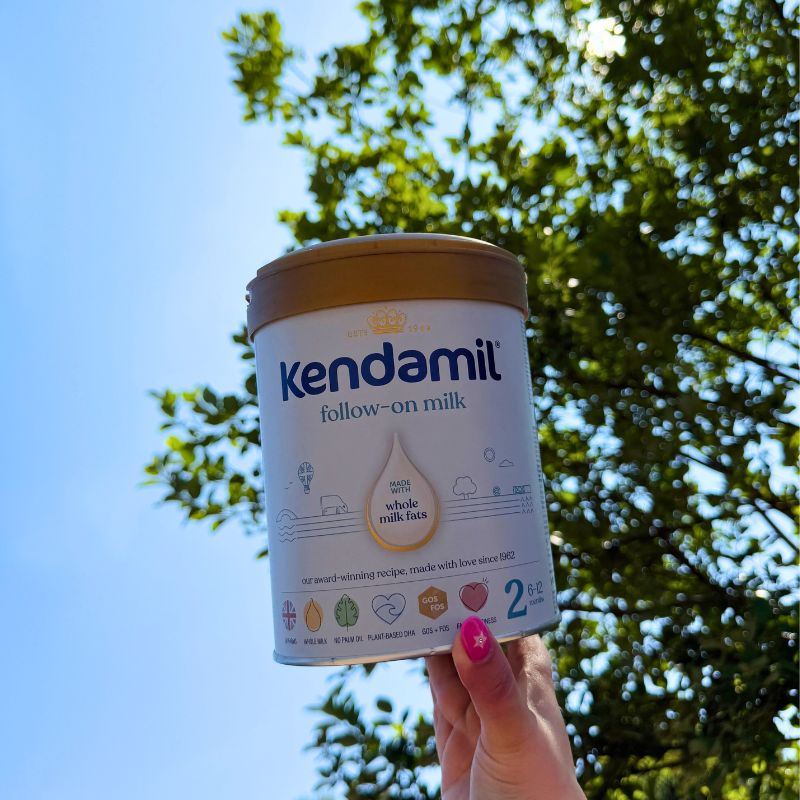As parents ourselves constipation can be really worrying to a new parent, especially when baby appears to be in discomfort. In this blog, we’ll dig into what constipation is, the signs to look out for, the potential causes of constipation in infants, and how to manage it effectively. Let’s jump into the most frequently asked questions when it comes to baby constipation.
What are the signs of constipation in babies?
Constipation in newborns occurs when bowel movements (their poo’s!) become infrequent or difficult. While it's natural for babies to have varied bowel movement patterns, long periods without passing stools can indicate constipation. This can make it tricky to recognise if your baby is suffering with constipation, as they may not have regular bowel movements like an adult does! Symptoms of constipation in a newborn can vary, but the most common ones include:
- Infrequent Bowel Movements: While the frequency of bowel movements can vary among babies, constipated newborns may have fewer bowel movements than usual, with longer intervals between them.
- Hard Stools: Constipated newborns may pass stools that are hard, dry, or pellet-like in consistency, rather than the softer stools typically seen in babies with regular bowel movements.
- Straining: Newborns experiencing constipation may strain or grunt during bowel movements, indicating difficulty passing stool.
- Crying and Irritability: Discomfort associated with constipation can cause newborns to become fussy, irritable, or restless. They may cry more than usual, especially during or after attempting to pass stool.
- Abdominal Discomfort: Constipation can lead to abdominal discomfort or pain in newborns, which may manifest as increased fussiness, arching of the back, or drawing up of the legs towards the abdomen.
How long is too long between poos for my baby? What is normal?
The frequency of bowel movements can vary depending on a baby's feeding pattern. Breastfed babies often have more frequent bowel movements, sometimes after every feeding, whereas formula-fed babies might go less often. Generally, for newborns, having at least 4 poos a day is considered normal, and this reduces to once a day for an older baby. However, if your baby seems comfortable and healthy, going several days without a bowel movement may not necessarily indicate constipation, so it’s really important to focus on what is ‘normal’ for your baby.
What are the main causes of constipation in infants?
Constipation in newborns can be caused by various factors:
- Dehydration: Dehydration often happens if baby isn’t receiving enough milk, resulting in harder stools that are difficult for them to pass.
- Ingredients: Different types of formula can affect your baby’s stools too; research has shown that formula containing palm oil/ olein can have an adverse effect on stool consistency (although you won’t find any of that in our Kendamil recipe!).
- Formula feeding: Formula feeding in general may contribute to constipation due to the different compositions of formula compared to breast milk, resulting in firmer stools for formula-fed babies.
- Medications: Medications like antibiotics or antacids can affect the digestive system and lead to constipation as a side effect.
- Diet: As a baby gets older, changes in diet such as introducing solid foods can disrupt a baby's digestive system, especially if they’re not getting enough fibre fibre. This commonly leads to constipation until their system adjusts.
Baby constipation remedies
The following tips for relieving constipation in babies are great ways to help your baby with regular bowel movements if they are constipated. They’re also great things to do on a regular basis to prevent constipation in infants from occurring. Most of these tips include natural remedies for infant constipation:
- Increase Fluid Intake: If your baby is exclusively breastfed, ensure they are feeding frequently. Breast milk is easily digestible and helps prevent dehydration, which can contribute to constipation. If you're formula-feeding, and your baby is over six months old, you could start introducing water between feeds to increase their fluid intake.
- Tummy Time: Engage your baby in supervised tummy time sessions. This position can help stimulate bowel movements and relieve discomfort by gently massaging the baby's abdomen.
- Bicycle Legs: Lay your baby on their back and gently move their legs in a bicycling motion. This movement can help stimulate the digestive system and relieve constipation.
- Warm Bath: A warm bath can help relax your baby's muscles and may provide relief from constipation. Additionally, gently massaging their abdomen while in the bath can aid in moving stool through the intestines.
- Gentle Abdominal Massage: Using gentle, clockwise strokes, massage your baby's abdomen. This can help relieve gas and promote bowel movements. Be careful not to apply too much pressure to avoid discomfort.
- Dietary Adjustments: If your baby has started solid foods, consider adjusting their diet to include more fibre-rich foods like pureed fruits (e.g. prunes, pears) and vegetables (e.g. peas, sweet potatoes). Ensure your baby is getting enough fluids alongside solid foods to prevent constipation.
Some parents like to give their baby a digestive supplement to help with anything related to the digestive system. At Kendamil, our digestive supplement “Pro-Comfort Baby Drops” contains 3 live strains of friendly bacteria, designed to support the development and balance of your little one’ gut microbiome. Shop for them here.
When should I call the doctor about my baby's constipation? Is it a sign of something more serious?
While occasional constipation is common and often resolves on its own, there are instances where seeking medical advice is necessary. If your baby displays severe symptoms such as persistent crying, refusal to eat, or blood in their stool, it's really important that you contact your healthcare provider promptly. Additionally, if constipation persists despite home remedies or if it's accompanied by other concerning symptoms, it may indicate an underlying issue that could require medical assistance.
By understanding what are normal bowel movements for infants, recognising potential causes of constipation, and knowing how to relieve your baby’s constipation with our natural home remedies, you’ll be sure to have a happy baby with a happy tummy in no time!
Want to learn more about baby poo? Of course you do! Then check out our blog here on All About Baby Poo.

















